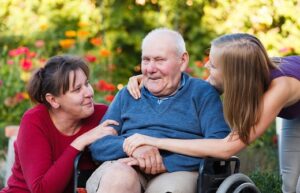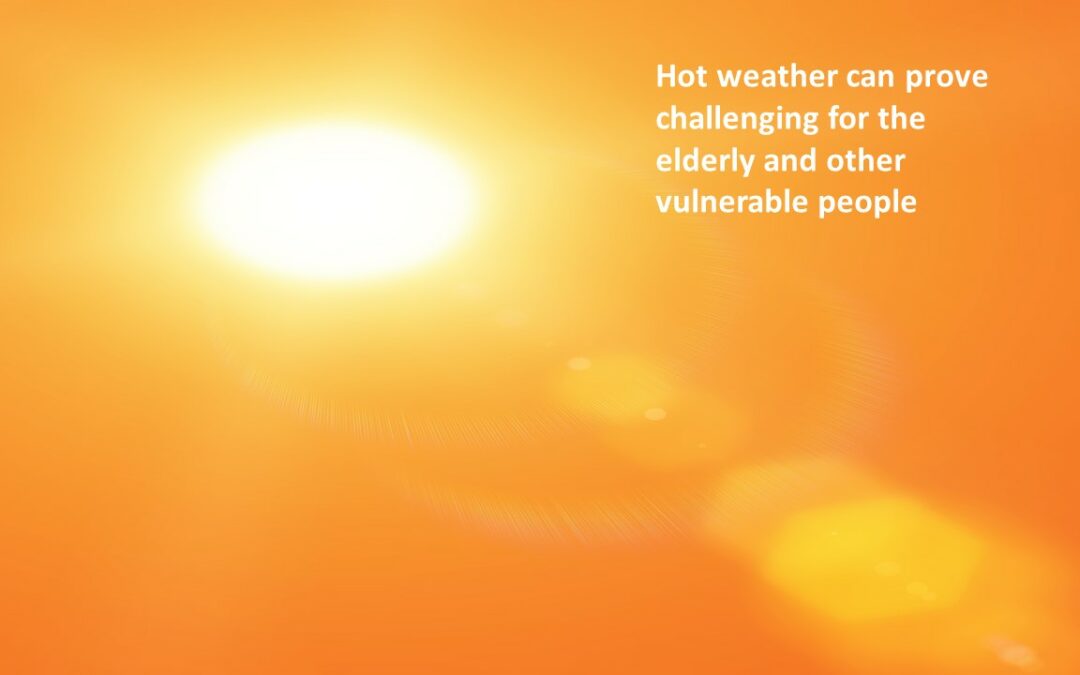In the UK a period of hot weather is declared a heatwave if the temperature is greater than 25oC for more than one day. Notably during a heatwave, the night time temperatures also stay high. If you care for elderly or other vulnerable people, you should have in place a policy which covers your strategies for managing heatwaves.
Social care providers should receive alerts form their local authority and other sources to which they subscribe of an impending or current heatwave. Failing to take proper care of the people who are vulnerable during a heatwave may be considered neglect and treated as a safeguarding event. Those mist at risk in the hot weather include:
- older people – especially those over 75 and those who are female
- those who live on their own or in a care home
- people who have a serious or long-term illness including heart or lung conditions, diabetes, kidney disease, Parkinson’s disease or some mental health conditions
- people who are on multiple medicines that may make them more likely to be badly affected by hot weather
- those who may find it hard to keep cool – babies and the very young, the bed bound, those with drug or alcohol addictions or with Alzheimer’s disease
- people who spend a lot of time outside or in hot places – those who live in a top-floor flat, the homeless or those whose jobs are outside
https://www.nhs.uk/live-well/seasonal-health/heatwave-how-to-cope-in-hot-weather/
You must be alert to and understand the signs and symptoms of heat exhaustion and heat stroke.
Staff should be updated about these and reminded to look out for them among service users perhaps at handover.
All social care providers should be familiar with the governmental advice: https://www.gov.uk/government/publications/hot-weather-and-health-supporting-vulnerable-people/supporting-vulnerable-people-before-and-during-hot-weather-social-care-managers-staff-and-carers
All care staff should be alert to these issues when the weather is particularly hot and should take measures to help service users stay cool, safe and hydrated including:

- Dressing in light loose fitting clothes, e.g. cotton or linen
- Offering frequent drinks
- Offering ice and iced drinks
- Replacing salts, e.g. with crisps and bananas
- Using a fluid chart monitor intake
Consider also:
- Monitoring temperature, pulse and blood pressures
- Offering cool baths and showers
- Closing doors and windows and using the air conditioning to cool the house down.
- Ensuring a summer menu is offered with cold foods, e.g. salad.
There are many other strategies which can help with keeping people cool and monitoring their health. Some of these are covered in detail in our Extreme Weather – Service Users Policy.
Remember if a service user becomes unwell through the heat, e.g. they faint, become very lethargic and perhaps start vomiting, cool them rapidly, if they are conscious get some fluids into them and in extreme cases call 999.
CAREis has monitoring charts with the care and support modules which may be used to help social care providers monitor their service users during a heatwave:https://www.careis.net/features/.
Staff and managers also need to remember that sitting service users outside while solving some potential issues with extreme heat indoors, also exposes people to the risk of sunburn, which is of itself dangerous. When sitting outdoors ensure people use:
 Shade – either a tree or an umbrella will do – remember the sun moves, so will the shade, service users cannot just be left alone out side
Shade – either a tree or an umbrella will do – remember the sun moves, so will the shade, service users cannot just be left alone out side- Long sleeves and long trouser legs provide protection from burning
- Sun cream needs to applied regularly and provide total coverage – use a cream with at least SPF30 rating
- Don’t forget a hat.
- Use sun glasses with UV filters to protect eyes
Follow this advice and ensure you and your service users stay safe in the sun and enjoy the heatwave.
